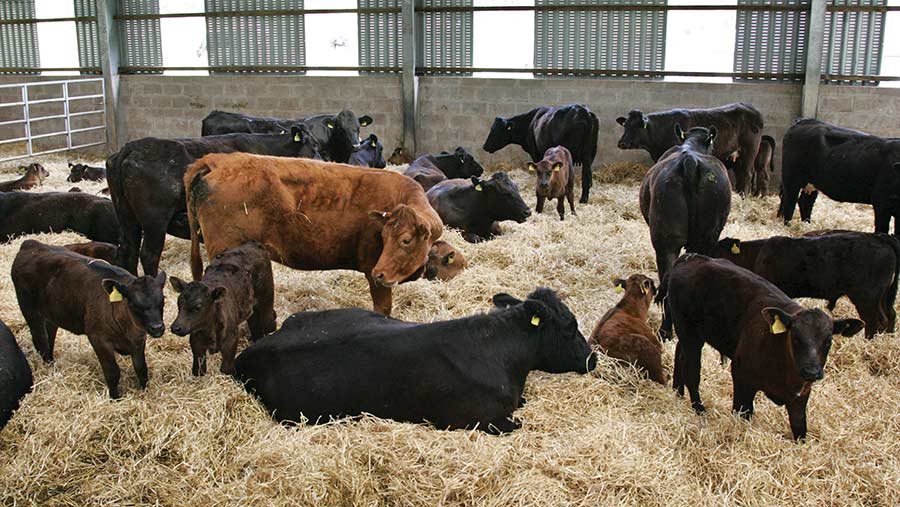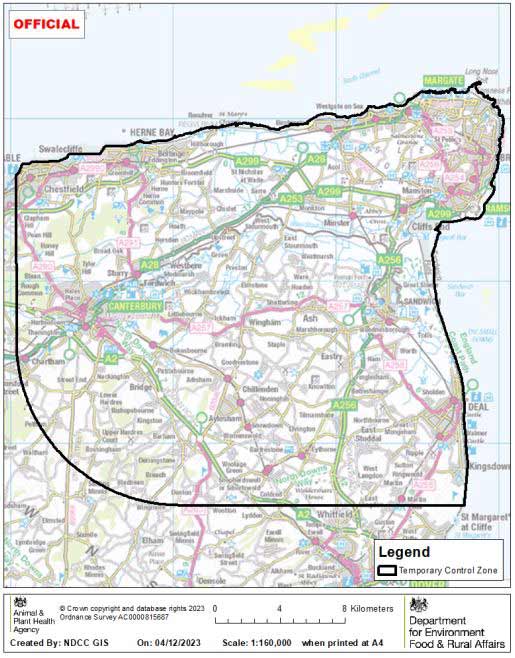Bluetongue control zone expanded after new case in Kent
 © Tim Scrivener
© Tim Scrivener Defra has expanded the bluetongue temporary control zone to cover large parts of north-east Kent after a further case of serotype 3 (BTV-3) was found in cattle.
A 10km control zone was first introduced in November and this has now been replaced to by a much larger area, including parts of Canterbury, Folkestone and Hythe, Dover, and Thanet districts.
It was brought into effect from 8pm on 4 December after being authorised by Defra secretary Steve Barclay.
See also: Four further cases of bluetongue found in Kent
The temporary control zone means farmers cannot move cattle, sheep, goats, deer or camelids to or from premises in the zone, unless a licence is issued by a veterinary inspector.

© Defra
Farmers could face a hefty fine or up to three months in jail, or both, if they are found to have broken the rules that have been imposed.
A Defra update said: “Following active surveillance of premises linked to cases within the 10km temporary control zone (TCZ), a further case of bluetongue serotype 3 in cattle has been identified.
“This animal was, until recently, grazing on a premises outside the TCZ. This brings the total number of cases to six. As a result, the TCZ has been extended.
“There is no evidence that there is circulating virus in the midge population. Surveillance is ongoing.”
The animal is due to be culled to reduce the risk of other cattle becoming infected.
Phil Stocker, chief executive of the National Sheep Association, said: “Farmers in the control zone have been adjusting their operations to cope with not being able to move livestock for the last two to three weeks, unless they go directly to a designated abattoir.
“The longer this goes on, people will be desperate to move their stock. There is also the challenge of farmers outside the zone accepting animals from within the zone.
“If this carries on for much longer it may become more of an issue.”
